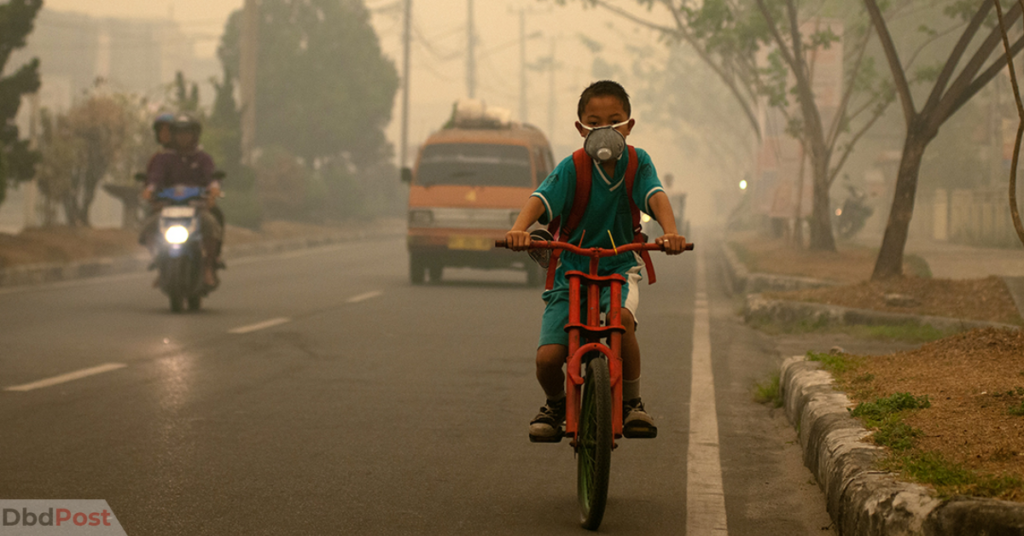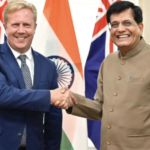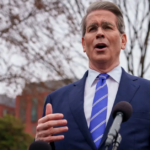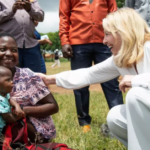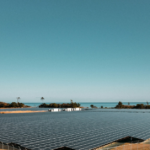Air pollution continues to claim the lives of the most vulnerable populations worldwide. Children under the age of five face disproportionate risks in East Asia and the Pacific.
According to a recent UNICEF report, over 100 children in this age group die daily from air pollution-linked illnesses.
The statistics reveal a growing crisis. Indoor and outdoor air pollution are the primary culprits. Both contribute significantly to this problem, making it harder to address comprehensively.
Solid fuels cause indoor pollution. Many families use wood, charcoal, and animal dung for cooking and heating. Poor ventilation exacerbates this problem, trapping harmful smoke indoors.
Outdoor pollution comes from various sources. Industrial emissions, vehicle exhaust, and agricultural burning are key contributors. Together, they release particulate matter that harms air quality and public health.
Children are particularly vulnerable to this exposure. Polluted air damages their lungs and causes respiratory infections. Over time, it can lead to asthma or even permanent lung damage.
The health impacts extend beyond respiratory diseases. Expectant mothers who are exposed to contaminated air have a higher likelihood of experiencing low-birth-weight babies.
These children also face higher risks of premature births and developmental delays.
Long-term exposure to pollution has other effects. It can impair children’s cognitive development, impacting their learning capacity and success in an academic environment.
The risks don’t stop there. Children in polluted environments are more likely to suffer chronic illnesses. These conditions place a heavy burden on families and healthcare systems.
Urbanization has exacerbated the issue. East Asian and Pacific cities report alarmingly high pollution levels, which often exceed World Health Organization (WHO) guidelines.
Marginalized communities bear the brunt of this crisis. They have limited access to clean energy and healthcare. It makes children in these areas especially vulnerable to the effects of pollution.
The economic costs of pollution are staggering. Families spend significant resources on medical treatments, and many already live in poverty, making these costs even more challenging to bear.
There are also broader societal consequences. Poor air quality reduces productivity due to pollution-related illnesses, which, over time, undermines economic growth and prosperity.
The societal costs go beyond financial losses. The loss of young lives is an immeasurable tragedy. Pollution diminishes human potential and perpetuates inequality.
UNICEF has outlined key recommendations to address this crisis. One solution is investing in renewable energy. Clean sources like solar and wind power can reduce reliance on fossil fuels.
Another critical step is improving indoor air quality. Expanding access to clean cooking technologies is essential. Electric stoves and liquefied petroleum gas (LPG) can significantly reduce indoor pollution.
Air quality monitoring systems also need improvement. Governments must identify pollution hotspots; targeted action can yield meaningful results.
Public awareness campaigns are equally important. Communities need education about the dangers of air pollution, and understanding the benefits of cleaner practices can empower individuals to make changes.
International cooperation is crucial. Resource-constrained regions need support for large-scale initiatives, and funding from global organizations can make cleaner technologies more accessible.
Some regional governments have made progress by imposing stricter emissions standards for vehicles and industries. However, enforcement remains a challenge in many areas.
Urban planning can also help. Prioritizing green spaces and sustainable transportation improves air quality. These measures require significant investment and long-term commitment.
Advocates emphasize the moral urgency of this issue. Air pollution is not just an environmental problem but a matter of children’s health and survival.
Preventable harms like air pollution should not claim young lives. Global action is needed to protect these rights.
The UNICEF report is a wake-up call. Air pollution’s impacts extend far beyond environmental degradation. The crisis endangers the lives and futures of millions of children.
By addressing pollution, we fight for children’s survival. Clean energy investments and stricter regulations can save countless lives. Public awareness and international cooperation can amplify these efforts.
The time to act is now. Solutions exist, but they require immediate implementation. Collective action to combat air pollution is essential for a sustainable future.
- 107shares
- Facebook Messenger
About the author
Draven Watson is a seasoned Global News Expert at DbdPost.com with extensive experience in analyzing and reporting international developments. Known for his sharp insights and comprehensive coverage, Draven unpacks the complexities of global events, offering readers a deeper understanding of the issues shaping our interconnected world.
